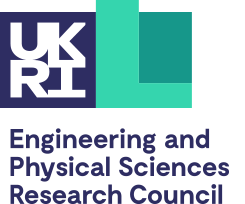£6,681,397
Centre for Sustainable Engineering
Funded Research Projects
The following are current funded research projects taking place within the research centre:
Harnessing Nanotechnology for Self-Powered Wireless ElectronicsPrincipal Investigator: Funding source: Royal Society / Royal Society Start: 01-01-2023 / End: 31-12-2027 Amount: £982,174 |
Exploring nanostructured light absorbers: from optoelectronics to innovative photovoltaicsPrincipal Investigator: Funding source: Royal Commission for the Exhibition of 1851 Start: 01-12-2022 / End: 30-11-2027 Amount: £84,100 |
Towards Thermally Resilient Photovoltaics: Optimising Perovskite Crystal Dynamics for Thermal Cycling Stable Solar CellsPrincipal Investigator: Zhe LI Funding source: UKRI Start: 05-06-2024 / End: 01-09-2027 Amount: £200,000 To develop resilient halide perovskite structures to withstand extremely environmental conditions |
Multifunctional High Entropy Carbide and Boride Ceramic Composites: Compositional Space, Novel Synthesis, and Property TailoringPrincipal Investigator: Michael REECE Funding source: EPSRC Engineering and Physical Sciences Research Council Start: 01-02-2024 / End: 31-01-2027 Amount: £523,977 |
Repairable Halide Perovskites for Sustainable Next Generation PhotovoltaicsPrincipal Investigator: Zhe LI Funding source: UKRI Start: 05-06-2024 / End: 01-01-2027 Amount: £200,000 To develop sustainable perovskite solar modules by enabling on-device self-repairing functions |
Utilisation of Synthetic Fuels for “Difficult-to-Decarbonise” Propulsion (EP/X019551/1)Principal Investigator: Xi JIANG Co-investigator(s): Nader KARIMI and Edo BOEK Funding source: EPSRC Engineering and Physical Sciences Research Council Start: 01-08-2023 / End: 31-07-2026 Amount: £436,930 Decarbonising the transport sector is a top priority worldwide. The difficult-to-decarbonise transport applications (including mainly shipping, road freight and aviation) emit more than 50% CO2 of the entire transport sector. Among efforts on developing low-emission fuels, liquid synthetic fuels that can massively reduce pollutant emissions are drawing increasing attention, as they can be integrated into the current transportation system using existing infrastructure and combusted in existing engines (such as diesel engines for optimal fuel economy) with minor adjustments as drop-in fuels. Liquid synthetic fuels such as oxymethylene ethers (OMEx, which possess liquid properties similar to diesel when x=3-5) can be produced from a range of waste feedstocks and biomass, thereby avoiding new fossil carbon from entering the supply chain. OMEx can also be produced as an electrofuel (or e-fuel), thereby used as a sustainable energy carrier. However, due to the lack of complete knowledge of the physicochemical properties associated with the fuel composition variability, i.e. variation in the oligomer length (the x value of OMEx) and the composition variation of OMEx-diesel blends in real engine environment, there are challenges in utilising OMEx in practical engines, mainly in engine and its operation adjustments for optimal performance and minimal pollutant emissions. To address the technical issues of OMEx utilisation, accurate information on physicochemical properties and pollutant emissions of the synthetic fuels over the engine operational ranges is mandatory, but this is not readily available. This project is intended to obtain a thorough understanding on liquid synthetic fuel utilisation. The project will address the fundamental challenges in utilising renewable synthetic fuels, in particular OMEx and the associated OMEx-diesel fuel blends. The study will follow a combined modelling / simulation - experimentation approach, predicting the physicochemical properties including emission characteristics of the alternative fuels using molecular dynamics simulations, tailor-made experimentation for first-hand information on fuel utilisation, and establishing a database / mapping to guide the synthetic fuel utilisation in real engines over a wide range of conditions using machine learning.** |
From 2D to 4D: correlative imaging and modelling for next-generation automotivePrincipal Investigator: Xuekun LU Funding source: EPSRC Engineering and Physical Sciences Research Council Start: 01-07-2023 / End: 30-06-2026 Amount: £448,598 |
FENCES: FErroelectric NanoComposites for Enhanced Solar energy efficiencyPrincipal Investigator: Joe BRISCOE Funding source: EU Commission - Horizon 2020 Start: 01-06-2021 / End: 31-05-2026 Amount: £1,599,992 Solar photovoltaics (PVs) and sustainable fuel production from photocatalysis have emerged as alternative technologies to fossil fuels. However, these technologies need innovative methods to improve and increase their efficiency and keep their costs low. The EU-funded FENCES project will demonstrate an innovative mechanism relying on the phenomenon of the bulk PV effect in ferroelectrics. The mechanism will combine ferroelectrics and photoactive materials in nanocomposite thin films to increase solar energy efficiency. FENCES will design and synthesise optimal ferroelectric nanostructures and control their characteristics. The project will also develop precise device models to accurately explain and predict device behaviour and use these models to predict optimal materials.** |
Prevention of phase-separation of corrosive aqueous acidic solution out of liquid carbon dioxide - SEMS Industry-supported PhD studentshipPrincipal Investigator: Radomir SLAVCHOV Funding source: CHANCELLOR, MASTERS AND SCHOLARS OF THE UNIVERSITY OF CAMBRIDGE Start: 02-04-2023 / End: 01-04-2026 Amount: £79,541 |
Bacterial nanocellulose -based polymer composites as solid polymer electrolyte for metal ion-batteriesPrincipal Investigator: Ana JORGE SOBRIDO Funding source: Royal Society Start: 31-03-2024 / End: 30-03-2026 Amount: £12,000 |
(RECYCLENS) Enhancing Confidence in the Use of Recycled Polymers and Composites via Electrical SensingPrincipal Investigator: Han ZHANG Funding source: EPSRC Engineering and Physical Sciences Research Council Start: 01-02-2024 / End: 31-01-2026 Amount: £49,996 |
Sustainable Electrodes for Advanced Flow BatteriesPrincipal Investigator: Ana JORGE SOBRIDO Funding source: MRC Medical Research Council Start: 01-02-2021 / End: 31-01-2026 Amount: £1,163,370 The research programme proposed in this Fellowship application details a plan to develop alternative electrodes for RFBs using sustainable resources. RFBs often employ carbon felts as electrodes, prepared from non-sustainable polyacrylonitrile (PAN), and their activity towards the redox reactions is poor, leading to low efficiency systems. I propose to use electrospinning, a very versatile processing technique that allows for fine control of the features of the materials prepared, to produce a new generation of freestanding electrodes with unique tailored properties that will increase the power density and voltage efficiency of RFBs. ** |
HIPES MSCA PF 2022Principal Investigator: Haixue YAN Funding source: EPSRC - EU Scheme Start: 01-11-2023 / End: 31-10-2025 Amount: £187,096 |
Energy filtering for high Seebeck voltages in ordered nanocompositesPrincipal Investigator: Oliver FENWICK Funding source: Defence Science and Technology Lab.-GOV UK Start: 01-10-2022 / End: 30-09-2025 Amount: £99,985 |
ESTEEM - Sustainable manufacturing for future compositesPrincipal Investigator: Han ZHANG Funding source: EPSRC Start: 01-10-2021 / End: 30-09-2025 Amount: £395,947 With only 1% of energy consumption compared to current manufacturing methods, high performance composites with integrated new functions like deformation and damage sensing as well as de-icing will be manufactured without needs of even an oven. This new method will be tuned to fully comply with the processing requirements of existing high performance composite systems, reducing costs in capital investment, operational, and maintenance aspects. The new functions will also provide real-time health monitoring of components' structural integrity to enable condition based maintenance with high reliability. |
Material, process and development of a novel composite, layered, plastic-free leather alternative derived from waste brewery grainPrincipal Investigator: Dimitrios PAPAGEORGIOU Funding source: Innovate UK Start: 01-10-2023 / End: 30-09-2025 Amount: £184,150 |
Paragraf support fund 2Principal Investigator: Colin HUMPHREYS Funding source: Paragraf Paragraf Limited Start: 01-08-2021 / End: 31-07-2025 Amount: £33,540 |




